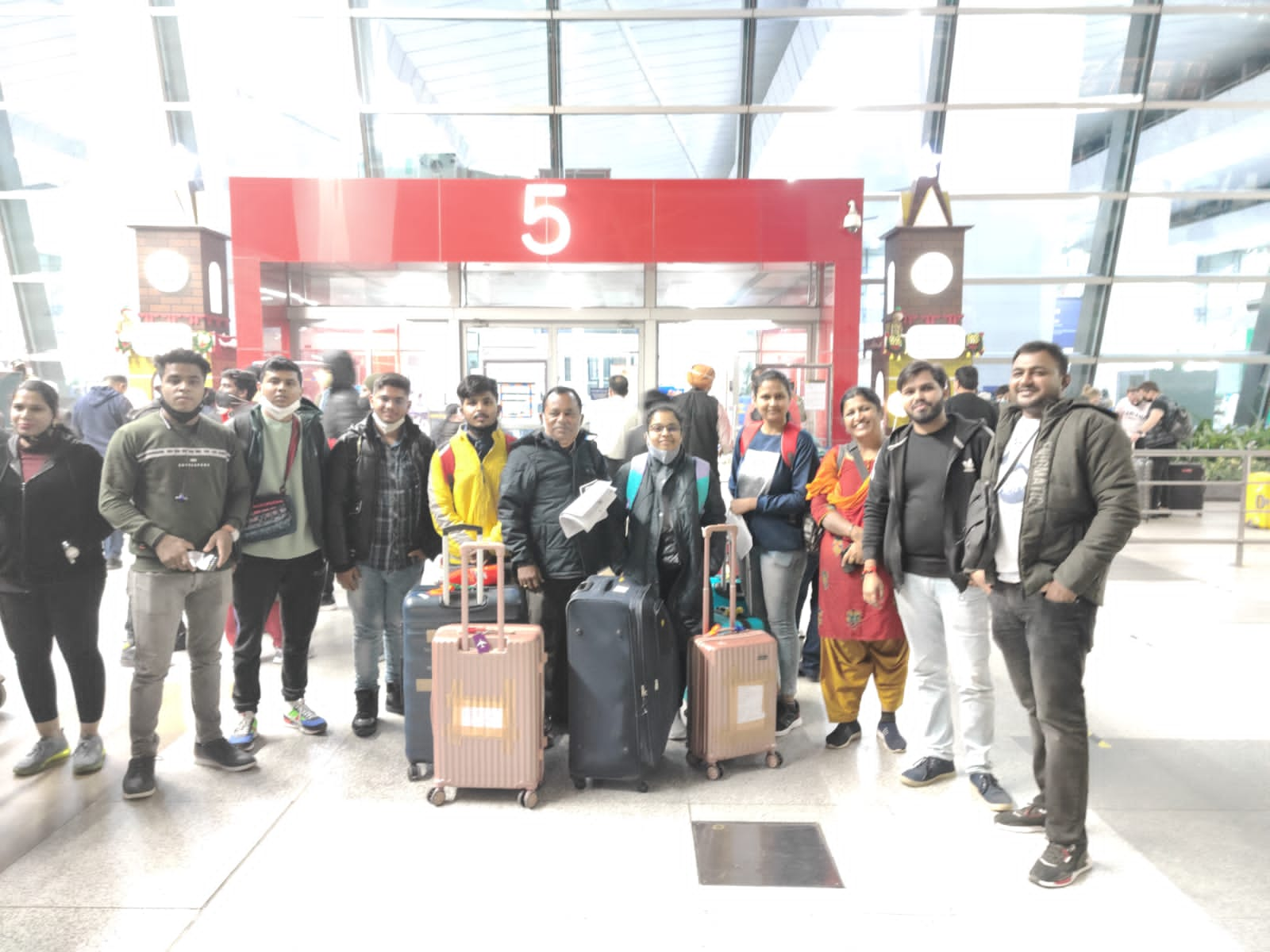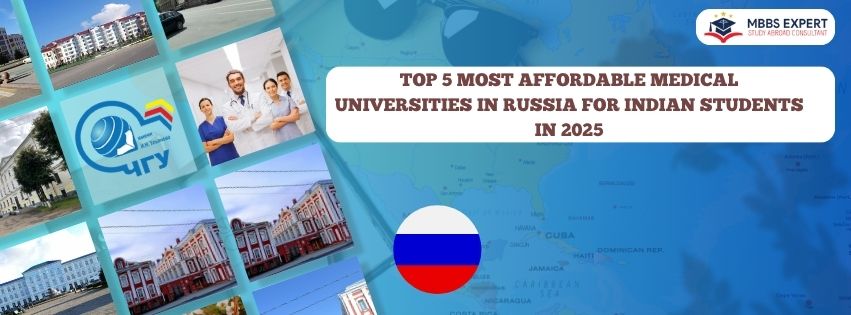Budget-Friendly Medical Education in Russia: Affordable Universities for Indian Students Introduction Pursuing a medical degree…

FMGE Passing Rate After MBBS in Russia: What Aspiring Doctors Need to Know
![]()
FMGE Passing Rate After MBBS in Russia: What Aspiring Doctors Need to Know
The Foreign Medical Graduate Examination (FMGE) is a crucial milestone for Indian students who have completed their medical education abroad and wish to practice medicine in India. It is a licensing exam conducted by the National Board of Examinations (NBE) and serves as a bridge for foreign-trained doctors to integrate into the Indian medical system. Among the popular destinations for Indian students pursuing MBBS degrees, Russia stands out due to its affordable tuition fees, reputable medical institutions, and international recognition. However, one of the pressing concerns for these graduates is the FMGE passing rate, which has significant implications for their professional future.
Overview of MBBS in Russia
Russia is home to several prestigious medical universities such as Moscow State Medical University, Saint Petersburg State Medical University, and Kazan Federal University. These institutions offer comprehensive medical programs that attract students from around the globe. The allure of studying medicine in Russia includes factors like:
- Quality Education: Russian medical universities are known for their high academic standards, well-equipped laboratories, and experienced faculty.
- Affordable Tuition Fees: Compared to private medical colleges in India, Russian universities offer more affordable education, making it an attractive option for many.
- International Recognition: Degrees from Russian medical universities are recognized by bodies such as the World Health Organization (WHO) and are listed in the World Directory of Medical Schools.
- Cultural Diversity: Studying in Russia provides exposure to a multicultural environment, which is beneficial for personal growth and professional development.
FMGE: An Essential Hurdle
Despite the benefits of studying in Russia, Indian medical graduates must clear the FMGE to practice in India. The FMGE is known for its rigorous standards and low passing rates. It is designed to assess the medical knowledge and clinical skills of foreign-trained graduates to ensure they meet the standards required in India.
The FMGE consists of 300 multiple-choice questions divided into two parts, and candidates must score at least 150 marks to pass. The exam covers a broad range of subjects, including Anatomy, Physiology, Biochemistry, Pathology, Pharmacology, Microbiology, Forensic Medicine, and several clinical subjects like Medicine, Surgery, Pediatrics, and Obstetrics & Gynecology.
FMGE Passing Rates: A Statistical Insight
The FMGE passing rate for graduates from Russian medical universities has historically been low. Several factors contribute to this trend:
- Differences in Curriculum: The medical curriculum in Russia differs significantly from that in India. While Russian universities focus on preparing students for clinical practice in their own healthcare system, the FMGE requires knowledge tailored to the Indian medical context.
- Language Barrier: Although many Russian universities offer MBBS programs in English, the language barrier can still pose a challenge. Understanding complex medical concepts in a non-native language can affect learning and retention.
- Exam Preparation: Many students underestimate the difficulty of the FMGE and do not adequately prepare for it. The exam requires a focused and strategic approach to studying, which is often lacking among graduates.
- Lack of Clinical Exposure: The clinical training in Russian universities may not be as rigorous or comprehensive as required for the FMGE, leading to gaps in practical knowledge.
Strategies for Improving FMGE Passing Rates
For Indian students pursuing MBBS in Russia, passing the FMGE requires a well-planned strategy and diligent preparation. Here are some key steps to enhance the chances of success:
- Early Preparation: Start preparing for the FMGE well before graduation. Familiarize yourself with the exam pattern, syllabus, and important topics. Utilize online resources, join coaching centers, and participate in mock tests to gauge your progress.
- Bridge the Curriculum Gap: Identify the differences between the Russian curriculum and the FMGE syllabus. Focus on the subjects and topics that are emphasized in the FMGE. This may require extra study materials and resources.
- Language Proficiency: Improve your medical English proficiency. Understanding medical terminology and concepts in English is crucial for both studying and passing the FMGE.
- Clinical Exposure: Seek additional clinical exposure whenever possible. Participate in internships and hands-on training sessions in India during vacations to gain practical experience and understand the Indian healthcare system.
- Peer Support and Study Groups: Form study groups with fellow Indian students in Russia. Discussing and studying together can help clarify doubts and reinforce learning.
- Regular Assessments: Take regular assessments and practice tests to track your progress. This will help identify weak areas that need more attention.
- Professional Coaching: Consider enrolling in FMGE coaching classes in India. These coaching centers specialize in preparing students for the FMGE and provide valuable insights, study materials, and guidance.
The Role of Medical Universities and the Indian Government
Medical universities in Russia and the Indian government also play a crucial role in improving FMGE passing rates. Universities can:
- Align Curriculum: Work towards aligning their curriculum more closely with the FMGE syllabus. Including subjects and topics emphasized in the FMGE will help students prepare better.
- Language Support: Offer additional support for English language learning. Conducting supplementary classes in medical English can bridge the language gap.
- Clinical Training: Enhance clinical training programs to provide more hands-on experience. Collaborating with Indian hospitals for internships can give students a better understanding of the Indian healthcare system.
The Indian government can:
- Information Dissemination: Provide comprehensive information about the FMGE and its requirements to students planning to study abroad.
- Support Networks: Establish support networks and resources for Indian students abroad, including online study materials, webinars, and mentoring programs.
- Policy Changes: Consider policy changes that facilitate better integration of foreign-trained doctors into the Indian healthcare system without compromising standards.
Other Popular Destination for MBBS
| MBBS in Egypt | MBBS in Bulgaria | MBBS in Mauritius |
| MBBS in Germany | MBBS in Moldova | MBBS in Latvia |
| MBBS in Central America | MBBS in Nepal | MBBS in USA |
| MBBS in Uzbekistan | MBBS in Ireland | MBBS in Tajikistan |
| MBBS in Caribbean Islands | MBBS in Philippines | MBBS in Bangladesh |
| MBBS in Spain | MBBS in United Kingdom | MBBS in Malaysia |
| MBBS in Turkey | MBBS in Czech Republic | MBBS in Canada |
Conclusion
The FMGE passing rate for Indian MBBS graduates from Russia is a critical concern that requires a multifaceted approach to address. While the challenges are significant, with early preparation, strategic studying, and support from universities and the government, aspiring doctors can improve their chances of success. By bridging the curriculum gap, enhancing clinical exposure, and utilizing available resources, students can navigate the path to becoming licensed medical practitioners in India.





